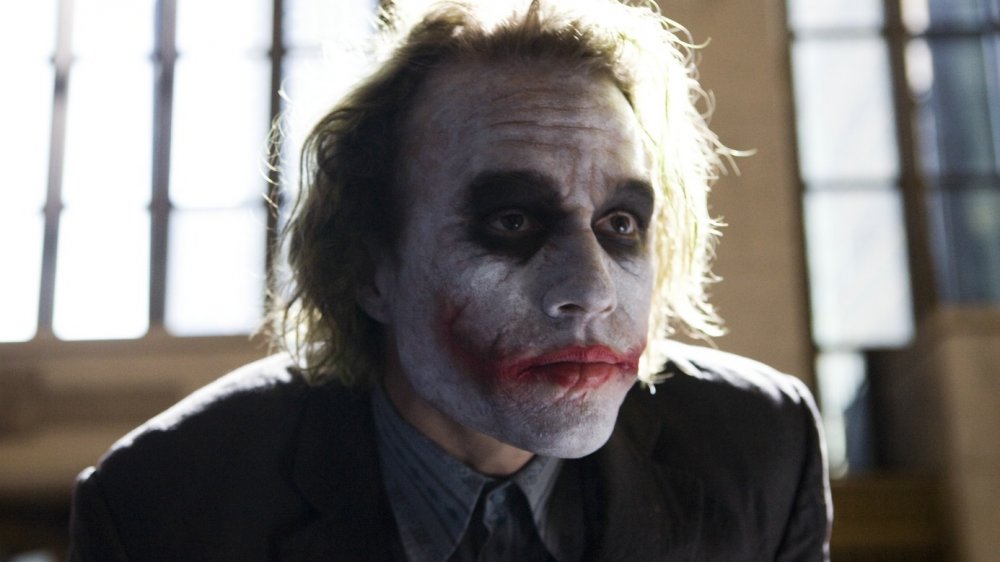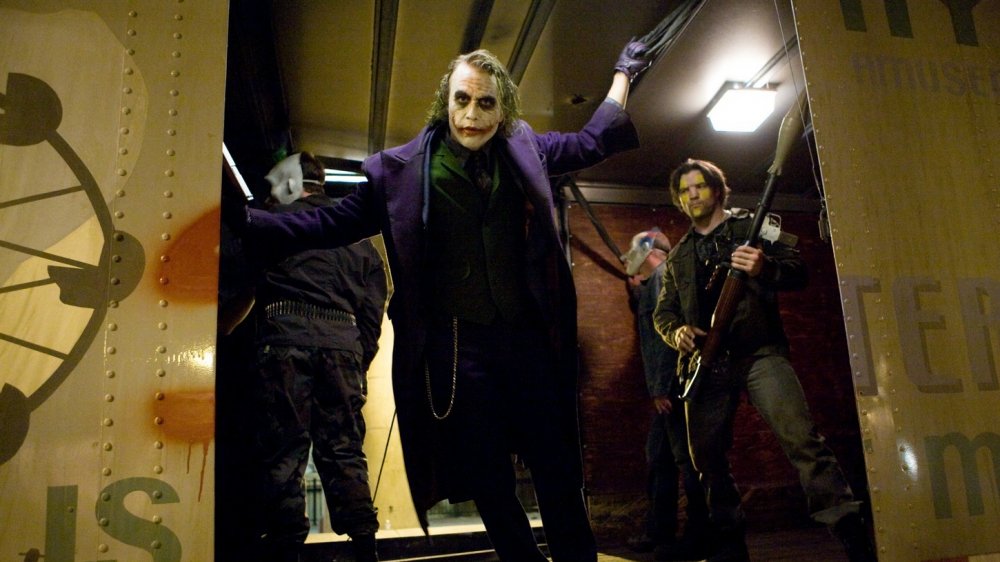The 'Controversial Thing' About The Dark Knight's Joker
Twelve years after its release, and we're still getting significant revelations about one of cinema's most celebrated takes on Batman.
Christopher Nolan's The Dark Knight has been heralded by some as not only Hollywood's best comic book adaptation ever but also as one of the best big-screen depictions of the Joker. Heath Ledger's acclaimed turn as one of the Bat's most nefarious and infamous foes earned him a post-humous Oscars win and a place in the comic book movie history books. This was partly due to Ledger's version of the Joker being a much more sinister and chaotic take than other interpretations on the Bat-baddie — one that had little rhyme or reason for his actions.
During a 2020 San Diego Comic-Con@Home Q&A panel entitled "The Art of Adapting Comics to the Screen," The Dark Knight writer David S. Goyer revealed that he and Nolan were nearly egged into giving an origin to the character whose lack of backstory has spawned a thousand fan theories. Despite the box office and critical acclaim of 2005's Batman Begins (the franchise predecessor to The Dark Knight), Goyer said he and Nolan's ultimate choice to not provide intel on the Joker's past was incredibly controversial — presumably among Warner Bros. executives.
"I do remember when we were talking about, 'Well, what if the Joker doesn't really have an origin story?'" Goyer said. "Even after the success of Batman Begins, that was considered a very controversial thing, and we got a lot of pushback. People were worried. 'Well, you have to have an origin story. How can people just not know?'"
Goyer, Christopher Nolan, and co-screenwriter Jonathan Nolan ultimately went sans origin story with the Joker, but they still pulled from the character's deep canon to craft their vision of the character.
The Dark Knight pulls from several works in the Joker's canon
Frank Miller's The Dark Knight Returns and Batman: Year One helped lay the groundwork for The Dark Knight trilogy, but when it comes to the Joker, Batman #1 and Alan Moore's 1988 DC Comics one-shot graphic novel The Killing Joke are written all over him.
These memorable takes on the Jester of Genocide help establish the seething brand of violence Ledger delivered to the awe of fans and critics alike. In a 2012 interview with IGN, Christopher Nolan shared that he and Jonathan looked at Batman #1 after they began writing. "[I] went back and looked at them, and we wound up at a place that's drawn very directly from that stuff," he said. "But we arrived at it in our own way by researching a lot of the more recent Joker stuff, and thinking about what this icon is when viewed through the prism of Batman Begins."
In a 2008 screening and Q&A panel hosted the Producers Guild of America, Nolan also revealed that they didn't draw from specific plot elements of The Killing Joke, but rather Moore's broader characterization of the Joker.
"I definitely feel the influence of The Killing Joke, not so much in the specifics as in constructing some sense of purpose for an inherently purposeless character," he explained. "That is to say the Joker is an anarchist. He's dedicated to chaos. He should really have no purpose, but I think the underlying belief that Alan Moore got across very clearly is that on some level, the Joker wants to pull everybody down to his level and show that he's not an unusual monster and that everyone else can be debased and corrupted like he is."
While Warner Bros. executives might have been scared of Goyer and the Nolans' creative choice, the film's three writers got the last laugh thanks to The Dark Knight's billion-dollar box office.

